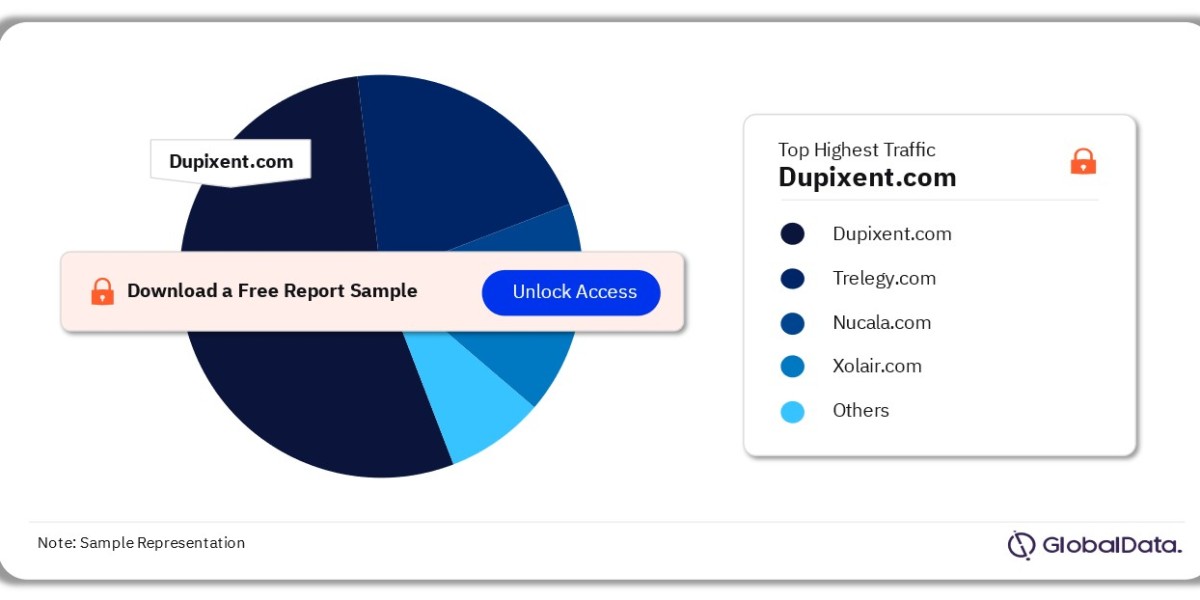Digital marketing has transformed how healthcare organizations, pharmaceutical companies, and patient advocacy groups connect with asthma patients. In an era where the internet is the first stop for information, digital strategies are helping to spread awareness, offer resources, and improve the quality of care for asthma patients. This article explores the top digital marketing trends in asthma care, highlighting how businesses and organizations can use these tools to engage their target audience effectively.
1. Personalized Content and Messaging
Personalized marketing has become a central component of digital campaigns, and in healthcare, it's even more crucial. For asthma patients, personalized content can mean the difference between generic advice and life-saving information. Marketers are leveraging data analytics and patient behavior insights to create content that resonates with individuals based on their medical history, lifestyle, and preferences.
For example, tailored newsletters, personalized reminders for medication, and customized educational materials based on patient needs are increasingly common. These methods ensure that asthma patients receive the most relevant information to manage their condition effectively.
2. Social Media for Patient Support and Education
Social media platforms like Facebook, Instagram, and Twitter have become essential channels for asthma awareness campaigns. Organizations are using these platforms to share educational content, promote health tips, and create online communities where patients can find support. Influencers, particularly those in the health niche, are also playing a key role in spreading awareness about asthma.
Additionally, social media provides a platform for real-time engagement. Asthma patients can follow live webinars, Q&A sessions, and virtual support groups, all of which contribute to improving their understanding of asthma management.
3. Video Content and Visual Storytelling
Video marketing is one of the most engaging formats, especially when explaining medical conditions like asthma. Companies and organizations are increasingly using video to create engaging, informative content that breaks down complex topics. From how-to videos on using inhalers to patient testimonials, video content is a powerful tool to raise awareness and educate both patients and caregivers.
Visual storytelling through infographics and short animations is another growing trend. These formats help simplify medical jargon, making it easier for patients to understand key asthma-related information.
4. Mobile Health (mHealth) Apps
Mobile health apps have become an essential tool for asthma patients. These apps track symptoms, monitor air quality, and provide reminders for medication. For marketers, integrating mobile apps with digital marketing campaigns offers a unique opportunity to engage users on a more personal level.
Pharmaceutical companies and healthcare providers are increasingly incorporating app-based solutions into their marketing strategies, offering exclusive content, tips, and updates directly to patients’ smartphones. These apps can also collect valuable user data, which can then be used to improve services and develop more targeted marketing campaigns.
5. Search Engine Optimization (SEO) for Healthcare
In the digital age, most asthma patients will turn to search engines for information about symptoms, treatments, or support. Therefore, having an optimized online presence is critical for any business or organization in the asthma space.
SEO strategies for asthma-related websites must focus on both local and global searches, aiming to rank highly for terms like "asthma symptoms," "asthma treatments," "best asthma inhalers," and so on. Structured data, such as FAQ sections and medical schema markup, can also help websites appear in rich snippets, providing direct answers to users’ queries.
6. Voice Search and Virtual Assistants
Voice search is a rapidly growing trend in healthcare marketing. As more people use devices like Amazon Alexa and Google Home for health-related queries, it's crucial to optimize for voice search. Asthma-related content should be easy to find through these virtual assistants.
Voice search optimization focuses on natural, conversational language, so it's important to include long-tail keywords that mimic how people speak. For instance, queries like "What is the best way to manage asthma during the winter?" are increasingly common through voice search.
7. Artificial Intelligence (AI) and Chatbots
Artificial intelligence is making its mark on the digital marketing landscape, especially in healthcare. AI-powered chatbots, for example, can offer 24/7 support for asthma patients by answering common questions, providing medication reminders, and offering resources for asthma management.
AI can also help analyze patient behavior, allowing marketers to refine their campaigns. Predictive analytics can identify trends in how asthma patients interact with online content, enabling businesses to create more effective marketing strategies.
8. Email Marketing for Patient Engagement
Email remains one of the most effective tools for patient engagement. For asthma patients, regular email updates can provide vital information about managing their condition, new treatments, or reminders about follow-up appointments. Personalization is key, with segmented email lists ensuring that the right messages reach the right people at the right time.
Healthcare organizations are also using automated email campaigns to send educational content, symptom trackers, and alerts about environmental triggers such as pollen levels.
9. Influencer Marketing in Healthcare
Influencer marketing has entered the healthcare industry, especially in the asthma community. Influencers who suffer from asthma or are health professionals can offer personal insights, product recommendations, and practical tips for managing the condition. These influencers often have highly engaged audiences who trust their advice, making them valuable partners for brands looking to promote asthma-related products or services.
10. Telehealth and Virtual Consultations
The COVID-19 pandemic has accelerated the adoption of telehealth services, which allow patients to consult with healthcare professionals remotely. Telehealth platforms are increasingly integrating with digital marketing efforts, providing an added level of convenience for asthma patients.
Marketing campaigns can highlight the benefits of virtual consultations, especially for patients who may be vulnerable to allergens or triggers during hospital visits. Promoting telehealth services not only improves patient outcomes but also enhances the brand’s reputation as an innovative healthcare provider.
For more traffic and engagement insights on the top branded patient websites in the US, download a free sample report






